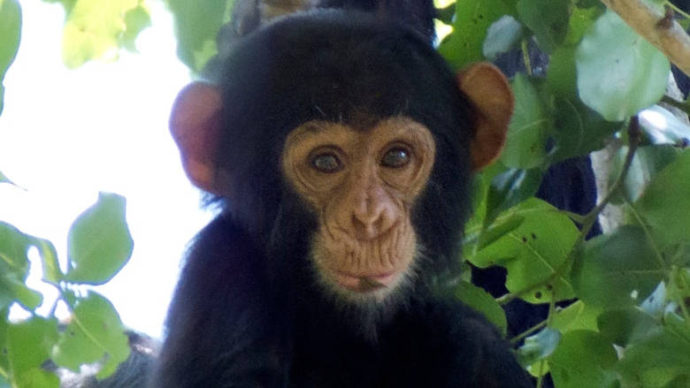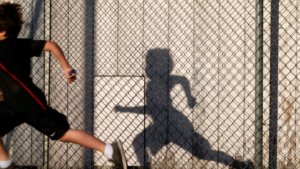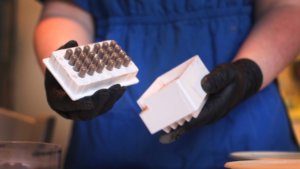
Chimpanzee beds are cleaner than ours, study finds
Who knew that our closest animal relatives, the great apes — specifically chimpanzees — keep tidier bedrooms than we humans do?
A group of researchers in Tanzania wanted to find out what kinds of bugs and bacteria lurk in chimps’ treetop nests, and how those compare to the ones found in our own beds.
“We know that human homes are effectively their own ecosystems,” said Megan Thoemmes, a PhD student at North Carolina State University and lead author of a study on this research.
For example, over one third of all bacteria in our beds come from our own bodies, which includes fecal, oral and skin bacteria, said Thoemmes.
Cotton swabs and a vacuum cleaner do the trick
To do their works in the tropical forests of Tanzania, the researchers waited each day for the chimps to vacate their premises.
Unlike humans, who sleep in the same bed over and over again, chimpanzees and other great apes build new nests every single night. By the morning they’re on the move again and set up camp elsewhere.
So when the coast was clear each day, the small group of researchers would climb the trees to collect their samples using cotton swabs and a handheld insect vacuum. This work went on between August 2013 and April 2014.
The researchers collected swabs from 41 beds. In 15 of those beds, researchers also vacuumed the inside of the nest and the ground directly below, to collect arthropod specimens — things like insects, mites, ticks or spiders.
“We were anticipating to find quite a number of ectoparasites (fleas) within chimpanzee beds,” says Thoemmes. “But we found almost none, which was really surprising.”
Surprising indeed, given that chimps play host to more than 60 parasites. But the clean beds are probably explained — at least in part — by chimps’ great grooming skills. They pick bugs from their fur, and the fur of other chimps, then snack on them.
‘Chimps poo in the morning,’ just like us
Thoemmes and her colleagues also expected to find a large amount of microbes from the chimps’ bodies, things like bacteria from the skin, saliva and feces. But again, the researchers found almost none.
Primatologist Adriana Hernandez-Aguilar, one of the team of researchers sucking up the dirt in Tanzania, offered an explanation for the lack of fecal matter.
“Chimpanzees are very peculiar because they never defecate in the nest,” she told CBC News from Barcelona. “Like many of us, they poo in the morning.”
When nature calls, chimps display some pretty impressive toilet hygiene, handy skills that prevent them from soiling their nests.
“They put one part of their body a little bit outside of the nest so the feces fall on the ground,” said Hernandez-Aguilar.
Chimps beds have a vastly different biodiversity from human ones, namely in greater diversity of microbes, reflecting the environments where the nests were found, according to the research.
It’s the opposite for humans.
“To put it simply, we have created sleeping places in which our exposure to soil and other environmental microbes has all but disappeared,” wrote the authors.
Most of the bacteria in human homes come from our own bodies — stuff like dead skin, drool, fecal matter — and from our pets. These form a virtual smorgasbord for all those dust mites hidden in our mattresses.
‘Germophobic society’
But before replacing your bed, mattress, sheets, pillows, consider this advice from epidemiologists.
“I could definitely see how the results of this study would seem a little upsetting and gross to some people,” said Elaina MacIntyre of Public Health Ontario. “Certainly there are microorganisms that, as long as you’re healthy, there’s no reason for concern. Our bodies are complex ecosystems where we can have both ‘good’ and ‘bad’ bacteria.”
Ryerson University epidemiologist Tim Sly said “a sterile bed is probably non-existent, and to be sure … the dust mites are present more often than not.” Most of us don’t even notice them.
Unless you’re allergic to dust, that is. If that’s the case, chances are you’re also allergic to the antigens on dust mites — the substances that produce an immune response in the microscopic creatures that dine on everyday house dust. In that case you might want to invest in mite-proof mattress and pillow covers. Changing the bedding more frequently also helps.
But Sly believes we’ve become a “steadily-increasing germophobic society.”
“Losing sleep from worrying about mites in the mattress is well on the road to neurosis.”
Photo credit: Ed Mclester
Original article at: http://www.cbc.ca/news/health/chimpanzees-beds-science-tanzania-ecosystem-environment-africa-1.4665679








